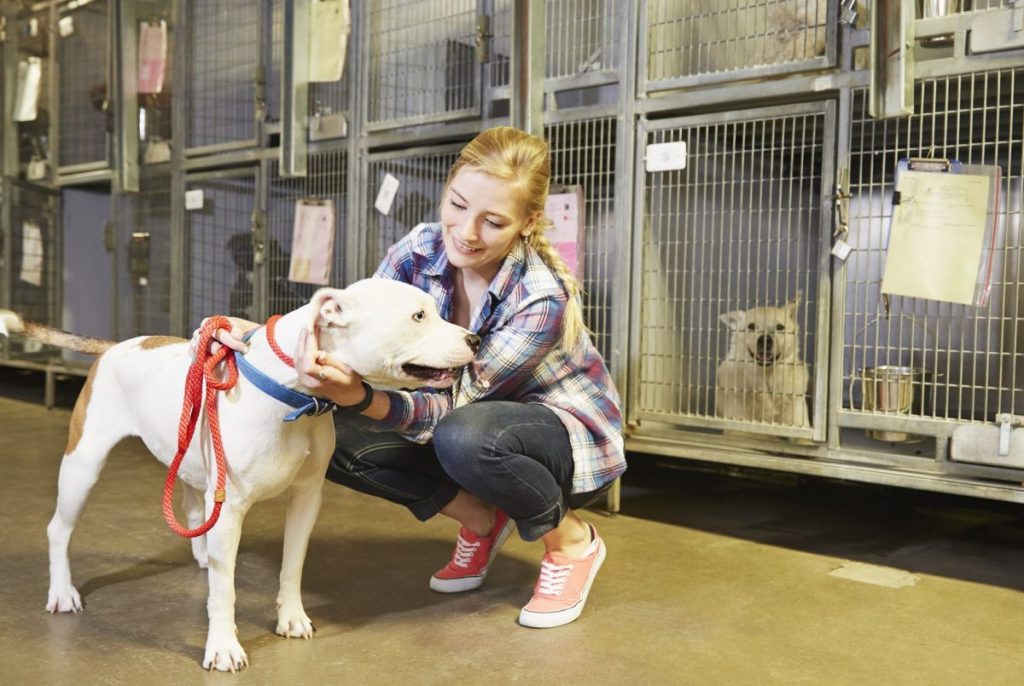When looking for a dog to adopt, you may have noticed certain buzzwords such as “velcro dog” and “very talkative” when reading the adoption post. But, what do these terms mean? Are you doomed to adopt a dog with behavioral problems or one that won’t fit in well with your household? Here’s how to understand some of those dog adoption posts, so you can find the right furry friend for you.
The purpose of dog adoption posts
An adoption post is a listing that gives you a bit more information about the dog you’re looking to adopt. Often, these give general breed and age information, any history the shelter or rescue has on the dog, and some information about the dog’s personality or suitable home life. The listing may also include photos or videos.
Adoption posts may sometimes use buzzwords to indicate if a dog has an issue that may need some extra care. However, that doesn’t mean the adoption will be hopeless! It just means you’ll know what to expect when you bring your new friend home.
“Food-motivated”
This term can mean a few things. A food-motivated dog may get a little too excited when the treats come out. But, that just means they appreciate the love! Food-motivated dogs may also be more cautious of people around their bowls or may guard food resources. An experienced pet parent or one willing to take it slow with training is a great match.
“Labrador Retriever mix”
You may notice a dog with the breed listing of Labrador Retriever mix. While these dogs can have Labrador Retriever blood, they may be mixed with terriers, shepherds, bully breeds, and more. Or, it can sometimes mean that the shelter isn’t sure what the dog’s breed makeup is. Think of it as a fun grab-bag of all the best breeds mixed together!
“Loves to play”
Dogs that are listed as playful or active are usually ones that will need a lot of exercise. These dogs are great in a home that has lots of activity, such as those of active joggers or hikers. If you’re looking for a companion that can keep up with your exercise routine, look for a listing with this included. Dogs that love to play also make for great entertainment when they get the zoomies!
“Takes time to warm up”
If you noticed the dog you’re looking at is listed as one that takes time to warm up, they could be shy, undersocialized, or fearful in new situations. While this isn’t a dealbreaker, it’s important to understand you may need to give extra care and patience until your new dog is more comfortable. These dogs may also benefit from a training program to help them feel more comfortable in new situations.
“Talkative”
Is that Siberian Husky listed as talkative? A talkative dog may be extra vocal. They may bark, howl, or make lots of noise when extra excited. While these dogs may not be great for an apartment or condo, they provide lots of fun and make great companions for pet parents with lots of room to run around.
“Velcro dog”
A dog listed as a “Velcro dog” may experience bouts of separation anxiety when you aren’t home. It’s possible these dogs don’t do well alone, or experienced trauma in the past that makes them a little clingy. But, these dogs are great if you work from home, are retired, or are looking for a dog that will be a great couch companion.
“Wants only your attention”
Sometimes a listing states a dog only wants your attention or should be an only pet. This means the dog may not get along with younger children or other dogs and pets in the household. These dogs, however, are great for experienced pet parents or those without children who want a best friend they can dote on all to themselves.
“Furever home”
A fun play on the forever home, a “furever” home is the perfect spot for a dog to settle in, enjoy life, and live it up. If you find a dog that fits all of your wants and lifestyle, why not give them that “furever” home they’ve been dreaming of? You won’t regret it.
While dog adoption posts may be confusing at times, it’s just another way for shelters and rescues to help make the adoption process go a little more smoothly. Now that you’ve decoded some terms, learn how to find the right shelter or rescue to look for your next best friend.









